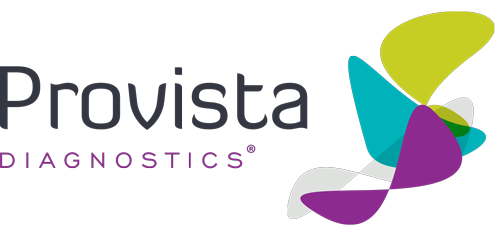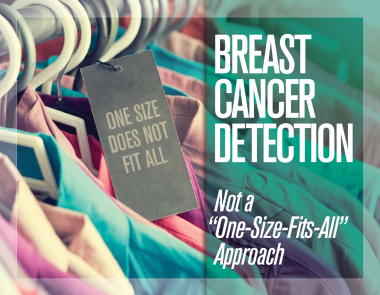Provista Ramping Up Commercialization Efforts for Proteomic Videssa Breast Cancer Test
Aug 11, 2016 | Adam Bonislawski
NEW YORK (GenomeWeb) – Provista Diagnostics is ramping up commercialization efforts for its Videssa Breast proteomic breast cancer test, expanding test availability from its initial clinical study partners to a somewhat larger group of early adopters, David Reese, Provista's president and CEO, told GenomeWeb this week.
The firm also is preparing to launch clinical utility and health economic studies to help drive payor coverage and clinical adoption of the test.
Meanwhile, Provista is in the middle of a Series C fundraising round targeting $25 million, the proceeds of which will be used to speed commercialization of the test, Reese said.
The Videssa test is intended to aid physicians in the interpretation of mammograms, helping them to distinguish between benign and malignant lesions that appear during imaging and to interpret results in patients with dense breasts, which can be difficult to assess via mammography.
Provista has completed two prospective clinical trials for the test, which it has written up in a paper currently under peer review. Reese said he could not discuss that publication, but data presented at various conferences over the last year indicate that the Videssa test could help reduce the number of unnecessary biopsies performed to follow up on mammogram findings.
Mammogram findings are graded using the Breast Imaging-Reporting and Data System (BI-RADS), a 0 to 6 scale with likelihood of malignancy rising with the number grade. A score of 1, for instance, is considered negative, while a score of 6 is a proven malignancy. It's in the 3 to 4 range that things get tricky, Reese said.
"In that range sometimes [for instance] an extra calcium marker showing up on the mammogram can lead a woman to a biopsy," he said.
At the same time, he noted, less than five percent of biopsies actually find a cancer, which makes for a high number of unnecessary procedures.
Women with dense breasts also present a challenge, as imaging is less reliable in these patients, Reese said. "Imaging techniques, except for MRIs, which are very expensive, can't really see through the dense tissue, and therefore the problem is those women when they are finally diagnosed, their cancers are on average 40 percent more advanced than those with non-dense breasts."
The Videssa test is intended as a rule-out test for both groups of patients, allowing a physician to either rule-out cancer in women with either a borderline BI-RADS score or where interpretation of a result is difficult due to dense breast tissue.
Overall, this represents a group of around 17 million patients annually, Reese said, noting that the company's economic models suggest the test could generate significant savings within this cohort.
"Say a woman has a dense breast and now she is considered high risk," he said. "Instead of getting a mammogram once a year, she gets one every six months. If we can say [based on the Videssa score] there is a 99 percent chance you have nothing, then those patients can be seen once a year with really no decrease in outcome."
Reese said that the test has negative predictive value of around 99 percent.
The Videssa test consists of 15 proteins, a mix of serum protein biomarkers and tumor-associated autoantibodies. The markers include autoantibodies initially discovered by Joshua LaBaer and Karen Anderson at the Biodesign Institute of Arizona State University, both members of Provista's advisory board.
Provista signed a deal with ASU in 2013 to evaluate the applicability of the researchers' autoantibody technologies and markers for diagnostic purposes and then expanded that deal a year later.
Based in New York City and with a Scottsdale, Arizona-based CLIA facility, Provista initially launched in 2004 as a mezzanine developer of molecular diagnostics that aimed to acquire early-stage biomarker tests, advance them to the clinical stage, and then sell them. Reese joined the company as CEO in 2011, whereupon he spun off much of the firm's assets and narrowed its focus to women's health.
Under Reese, Provista initially sought to develop its DtectDx Breast test, which it had previously sold as the BT Test in Ireland and the UK through International Health Technology. Like Videssa breast, that test was intended to aid physicians in interpreting mammograms. Videssa incorporates portions of the BT Test panel while also including additional markers such as those developed by LaBaer and Anderson. Provista published a paper on the development of the test this week in PLOS ONE.
Now, Reese said, Provista is gearing up to launch clinical utility and health economic studies of the test. He said the company has lined up around 30 clinical sites and plans to submit a protocol to an independent review board within the next 30 days with the goal of starting the studies in the next 90 days.
"Places like [the Centers for Medicare & Medicaid Services] and major payors want you to run studies where clinicians are actively using the test and it is changing their behaviors, and they want you to test how these behaviors are changed," Reese said. "So, for example, are fewer biopsies being performed unnecessarily, or are fewer MRIs being ordered [for women with dense breasts]. And then, secondly, what are the economics of that?"
Provista offers the Videssa test out of its CLIA lab, but Reese said the company has always felt that "it is prudent" to be ready to take the test through the US Food and Drug Administration regulatory process if necessary. He did not cite any specific plans to do so, but he noted that the company had recently brought on a new hire with significant experience taking diagnostics through the FDA's 510(k) and pre-market approval processes.
"This is something we are well positioned to execute on," he said.
Provista, which numbers 50 employees, is also targeting $25 million in a Series C funding to help speed acceleration of the test. The company has raised more than $30 million since Reese took over as CEO in 2011.










